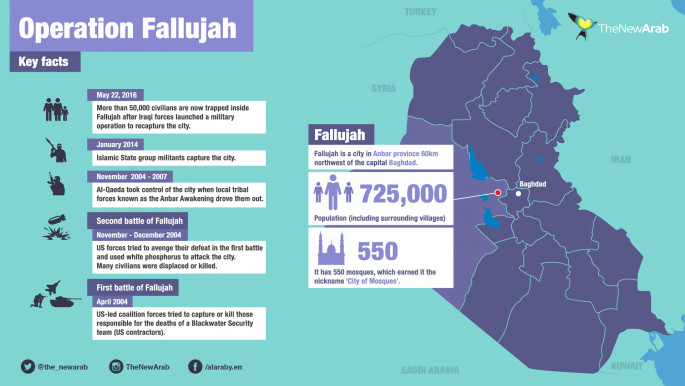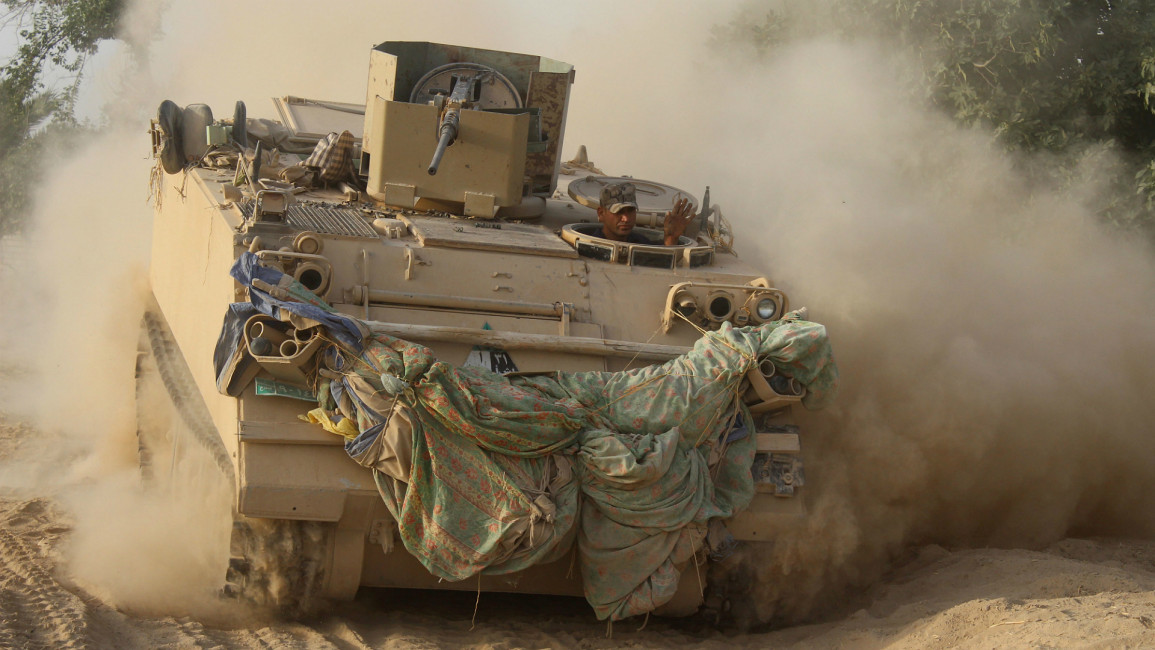Fallujah offensive against Islamic State halted over civilian concerns
The pause was announced by Iraqi Prime Minister Haider al-Abadi on state television on Wednesday, when he told military commanders near the front line that, "It would have been possible to end the battle quickly if protecting civilians wasn't among our priorities."
"Thank God, our units are at the outskirts of Fallujah and victory is within reach," he continued.
While most civilians have been evacuated from the war-torn city, around 50,000 believed to still be trapped between the government advance and the IS grought who currently hold the city. Acording to UNICEF, the UN's arm dedicated to children's rights, around 20,000 of that number are children.
The UN has also reported that the IS group have used the city's residents as human shields.
"We are concerned over the protection of children in the face of extreme violence," UNICEF Representative in Iraq Peter Hawkins said in a statement. "Children face the risk of forced recruitment into the fighting," he continued.
| | |
| Video: Iraqi refugees seek shelter in Syria [TNA] |
Furthermore, the World Food Programme (WFP) has said the humanitarian crisis inside the city walls is getting worse.
"The city is inaccessible for assistance and market distribution systems remain offline... The only food available does not come from the markets, but from the stocks that some families still have in their homes."
Fallujah, which is located in Iraq's Anbar province, was the first of the country's cities to fall to the IS group in January 2014. The militant group also controls parts of the country's north and west, including Iraq's second largest city of Mosul.
During the US-led military invasion of Iraq that began in 2003, Fallujah saw some of the heaviest fighting between Iraqi insurgents and the US-led coalition's troops.
 |
| [Click to enlarge] |



